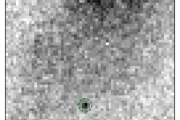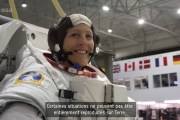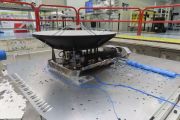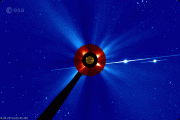
Copernical Team
In-flight call with ESA astronaut Sophie Adenot
 Video:
00:19:11
Video:
00:19:11
On 26 February, ESA astronaut Sophie Adenot conducted her first in-flight call with selected French media.
Earth from Space: Terra Nova Bay, Antarctica
 Image:
The Copernicus Sentinel-2 mission captures the icy landscape of Terra Nova Bay in East Antarctica.
Image:
The Copernicus Sentinel-2 mission captures the icy landscape of Terra Nova Bay in East Antarctica. First glimpse of comet 3I/ATLAS from Juice science camera
 Image:
First glimpse of comet 3I/ATLAS from Juice science camera
Image:
First glimpse of comet 3I/ATLAS from Juice science camera A new space race could turn our atmosphere into a 'crematorium for satellites'
We're checking your connection to prevent automated abuse
World-first gigabit-per-second laser link between aircraft and geostationary satellite

Faster, more secure connections from space could one day make broadband on planes, ships and even remote roads as easy as turning on a light. The European Space Agency (ESA), Airbus Defence and Space, the Netherlands Organisation for Applied Scientific Research (TNO) and German payload manufacturer TESAT (as subcontractor) successfully connected an aircraft to a geostationary satellite using laser communications, bringing people closer to seamless, high‑speed connections in daily life.
Why Mars astronauts need more than just space greenhouses
We're checking your connection to prevent automated abuse
NASA moves its Artemis II moon rocket off the launch pad for more repairs
We're checking your connection to prevent automated abuse
Students kick off experiments on ESA’s flat floor
 Image:
Students kick off experiments on ESA’s flat floor
Image:
Students kick off experiments on ESA’s flat floor Connecting a jacket to space to save lives

The future of satellite-connected wearables is closer to becoming an everyday reality thanks to the world’s first-ever two-way S-band connectivity from a wearable antenna with a geostationary satellite. In autumn 2025, a team climbed mount Halti to test the antenna’s capabilities. Developed by Finnish company Stealthcase, with support from the European Space Agency (ESA) and in collaboration with Radientum, the innovative antenna was integrated into a jacket by outdoor clothing brand HALTI. The demonstration paves the way for reliable communication for
Brain learns faster from rare rewards than from repetition
 More than a century after Pavlov trained dogs to link a bell with food, neuroscientists at the University of California, San Francisco report that the brain may rely more on the timing of rewards than on sheer repetition when forming associative memories of cues and outcomes. Their work suggests that what matters for learning is how far apart cue-reward experiences are spaced in time, rather tha
More than a century after Pavlov trained dogs to link a bell with food, neuroscientists at the University of California, San Francisco report that the brain may rely more on the timing of rewards than on sheer repetition when forming associative memories of cues and outcomes. Their work suggests that what matters for learning is how far apart cue-reward experiences are spaced in time, rather tha 



































